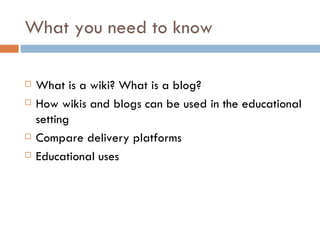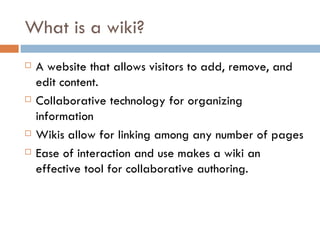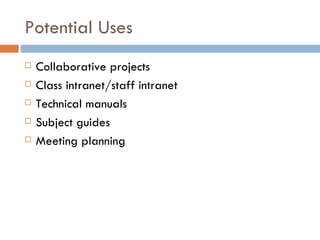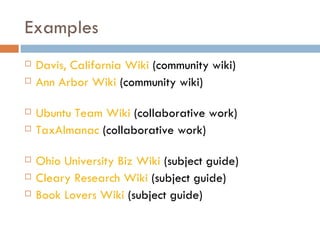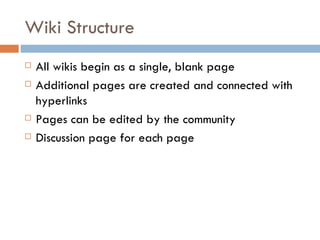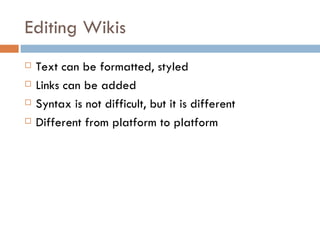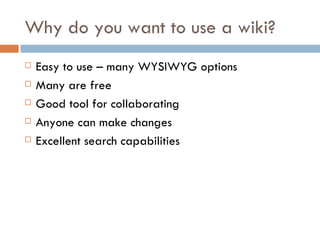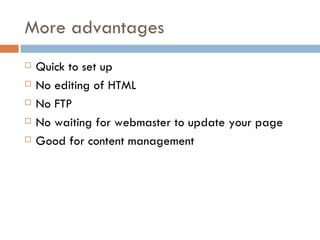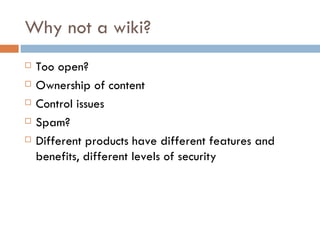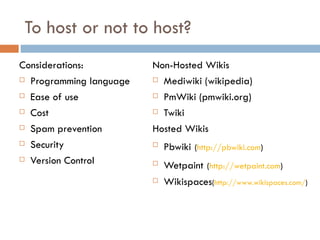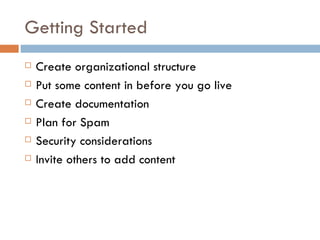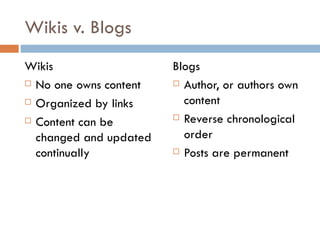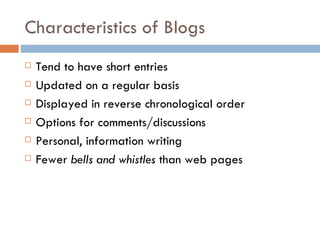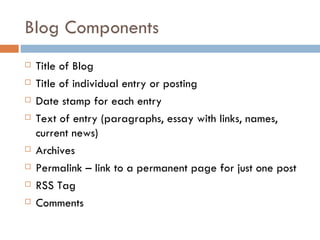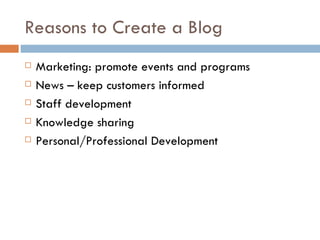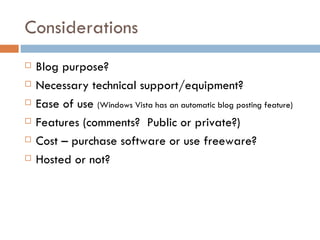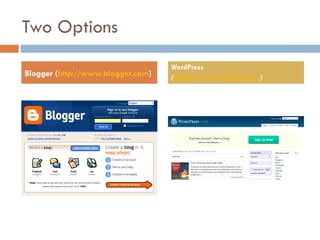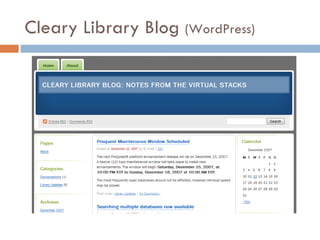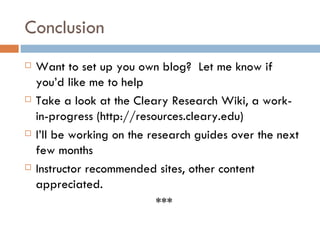Wikis and blogs
- 1. WIKIS AND BLOGS Jane Ellen Innes December 13, 2007
- 2. What you need to know What is a wiki? What is a blog? How wikis and blogs can be used in the educational setting Compare delivery platforms Educational uses
- 3. What is a wiki? A website that allows visitors to add, remove, and edit content. Collaborative technology for organizing information Wikis allow for linking among any number of pages Ease of interaction and use makes a wiki an effective tool for collaborative authoring.
- 4. Potential Uses Collaborative projects Class intranet/staff intranet Technical manuals Subject guides Meeting planning
- 5. Examples Davis, California Wiki (community wiki) Ann Arbor Wiki (community wiki) Ubuntu Team Wiki (collaborative work) TaxAlmanac (collaborative work) Ohio University Biz Wiki (subject guide) Cleary Research Wiki (subject guide) Book Lovers Wiki (subject guide)
- 6. Wiki Structure All wikis begin as a single, blank page Additional pages are created and connected with hyperlinks Pages can be edited by the community Discussion page for each page
- 7. Editing Wikis Text can be formatted, styled Links can be added Syntax is not difficult, but it is different Different from platform to platform
- 8. Why do you want to use a wiki? Easy to use – many WYSIWYG options Many are free Good tool for collaborating Anyone can make changes Excellent search capabilities
- 9. More advantages Quick to set up No editing of HTML No FTP No waiting for webmaster to update your page Good for content management
- 10. Why not a wiki? Too open? Ownership of content Control issues Spam? Different products have different features and benefits, different levels of security
- 11. To host or not to host? Considerations: Programming language Ease of use Cost Spam prevention Security Version Control Non-Hosted Wikis Mediwiki (wikipedia) PmWiki (pmwiki.org) Twiki Hosted Wikis Pbwiki ( http://pbwiki.com ) Wetpaint ( http://wetpaint.com ) Wikispaces ( http://www.wikispaces.com/ )
- 12. Wiki Comparison Wiki Matrix - http://www.wikimatrix.org/ Provides a comprehensive list of hosted and non-hosted wikis Side-by-side comparison
- 13. Getting Started Create organizational structure Put some content in before you go live Create documentation Plan for Spam Security considerations Invite others to add content
- 14. Wikis v. Blogs Wikis No one owns content Organized by links Content can be changed and updated continually Blogs Author, or authors own content Reverse chronological order Posts are permanent
- 15. Characteristics of Blogs Tend to have short entries Updated on a regular basis Displayed in reverse chronological order Options for comments/discussions Personal, information writing Fewer bells and whistles than web pages
- 16. Blog Components Title of Blog Title of individual entry or posting Date stamp for each entry Text of entry (paragraphs, essay with links, names, current news) Archives Permalink – link to a permanent page for just one post RSS Tag Comments
- 17. Reasons to Create a Blog Marketing: promote events and programs News – keep customers informed Staff development Knowledge sharing Personal/Professional Development
- 18. Considerations Blog purpose? Necessary technical support/equipment? Ease of use (Windows Vista has an automatic blog posting feature) Features (comments? Public or private?) Cost – purchase software or use freeware? Hosted or not?
- 19. Two Options Blogger ( http://www.blogger.com ) WordPress ( http://www.wordpress.com )
- 20. Cleary Library Blog (WordPress)
- 21. Conclusion Want to set up you own blog? Let me know if you’d like me to help Take a look at the Cleary Research Wiki, a work-in-progress (http://resources.cleary.edu) I’ll be working on the research guides over the next few months Instructor recommended sites, other content appreciated. ***


